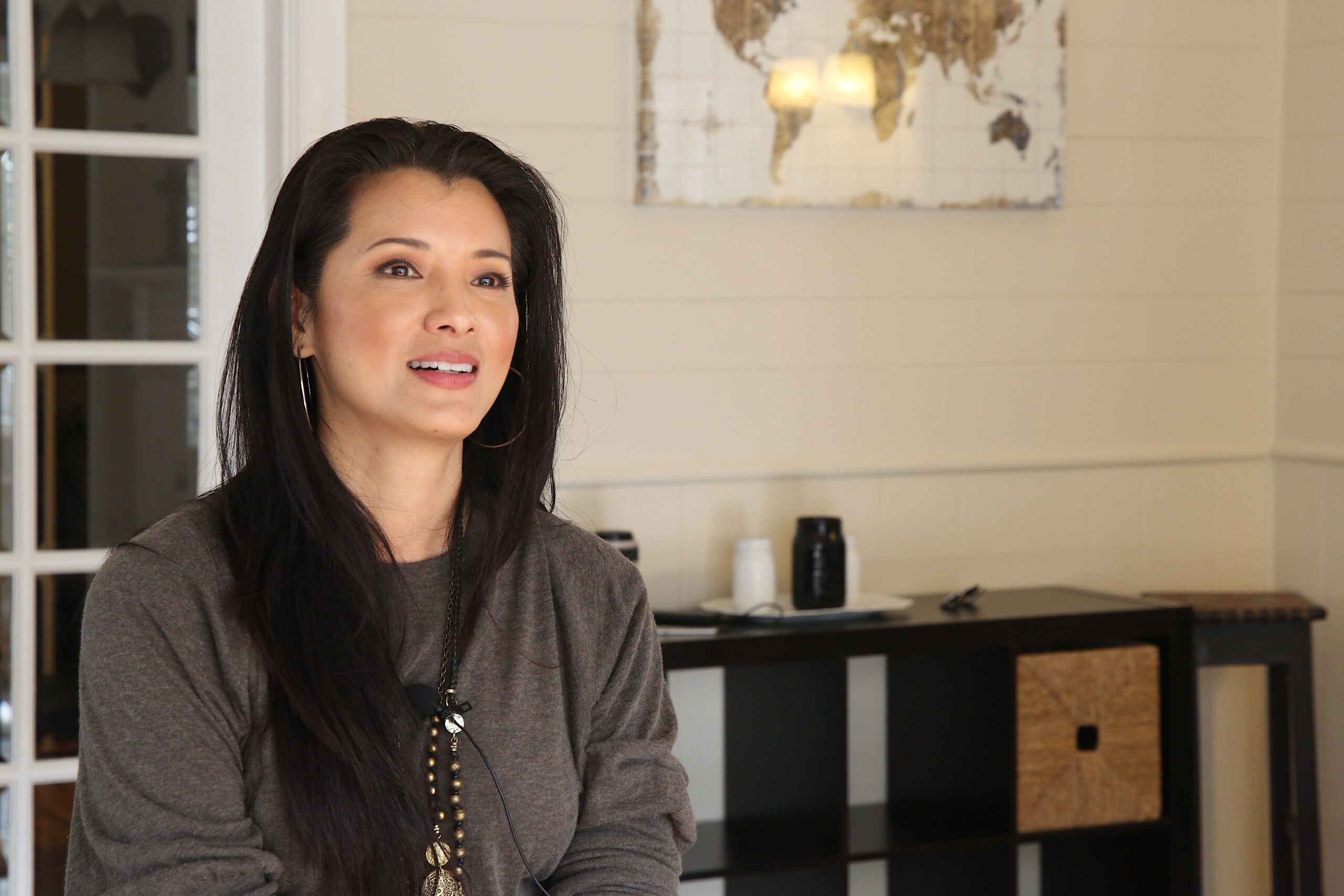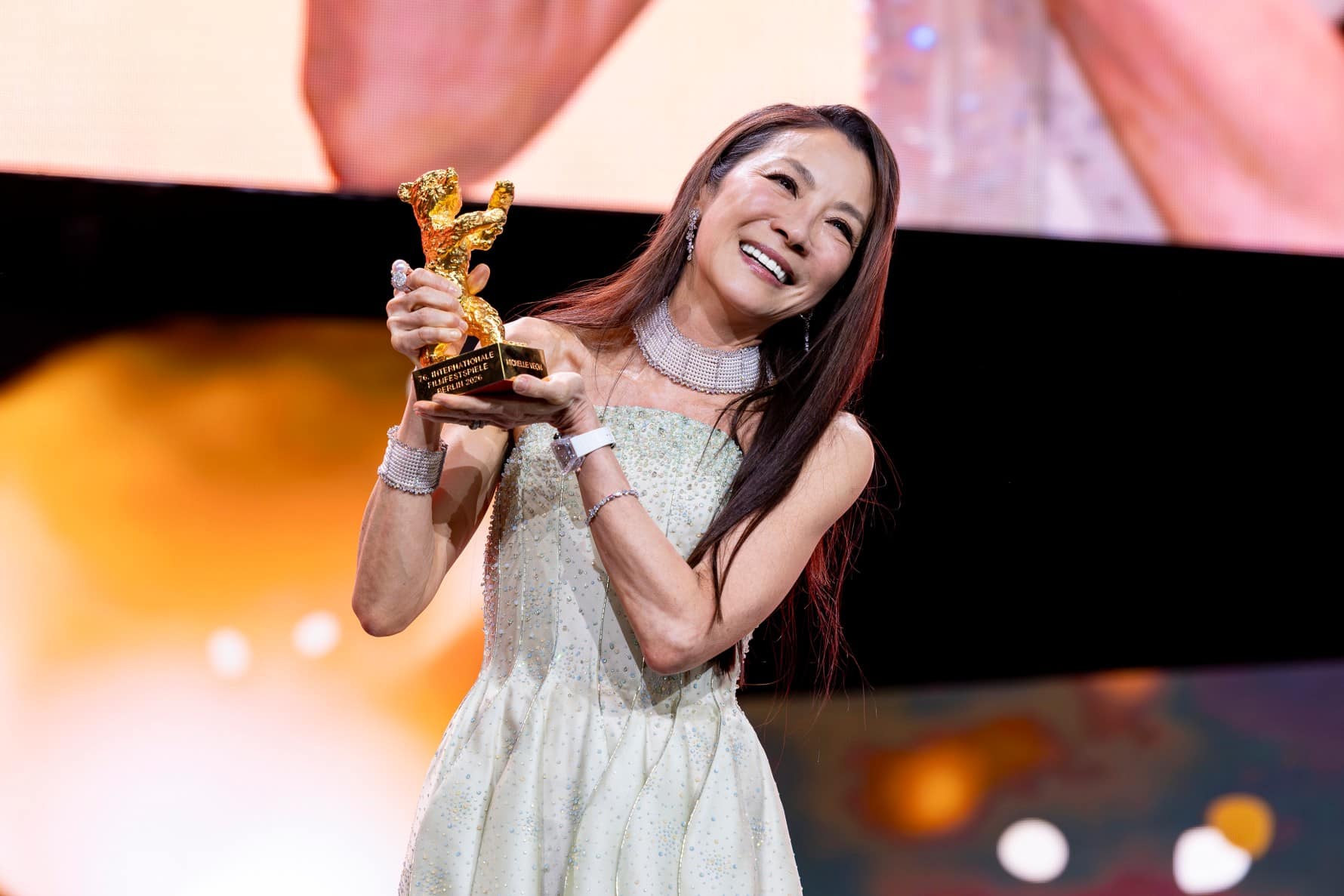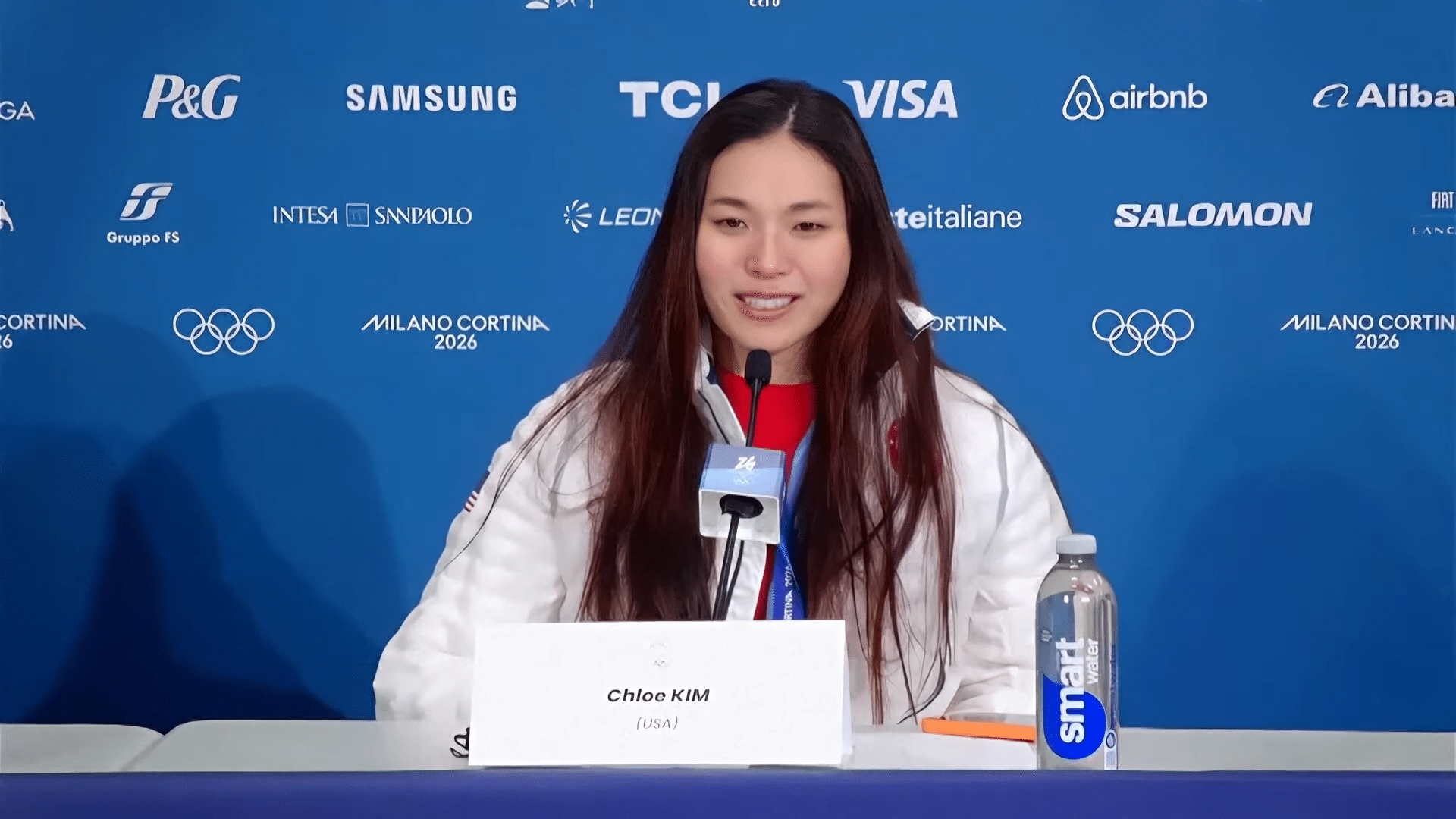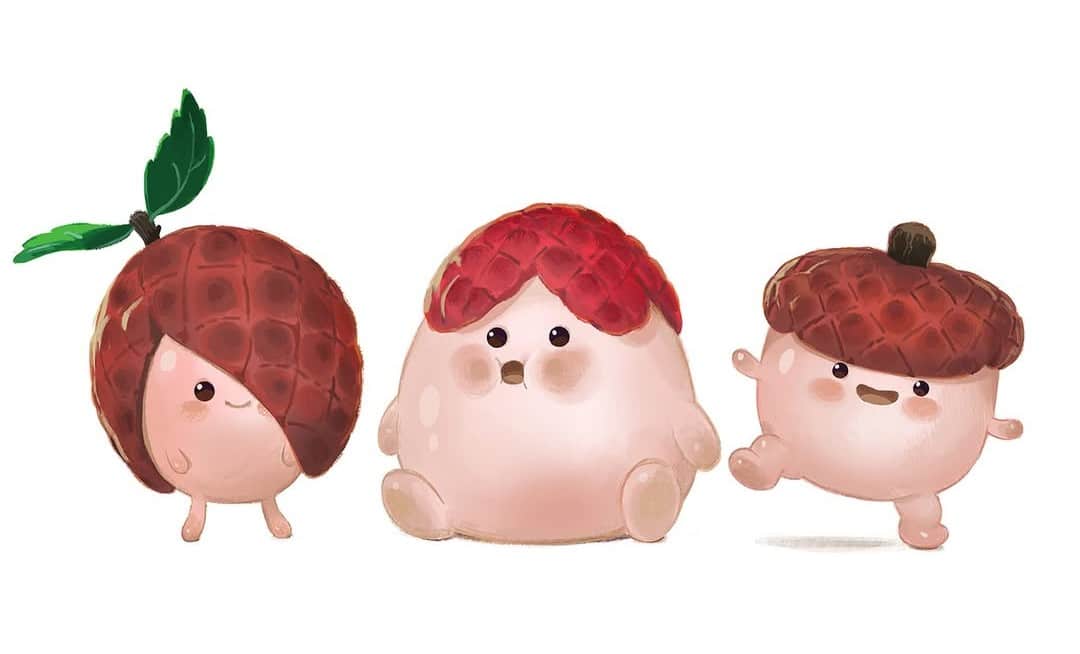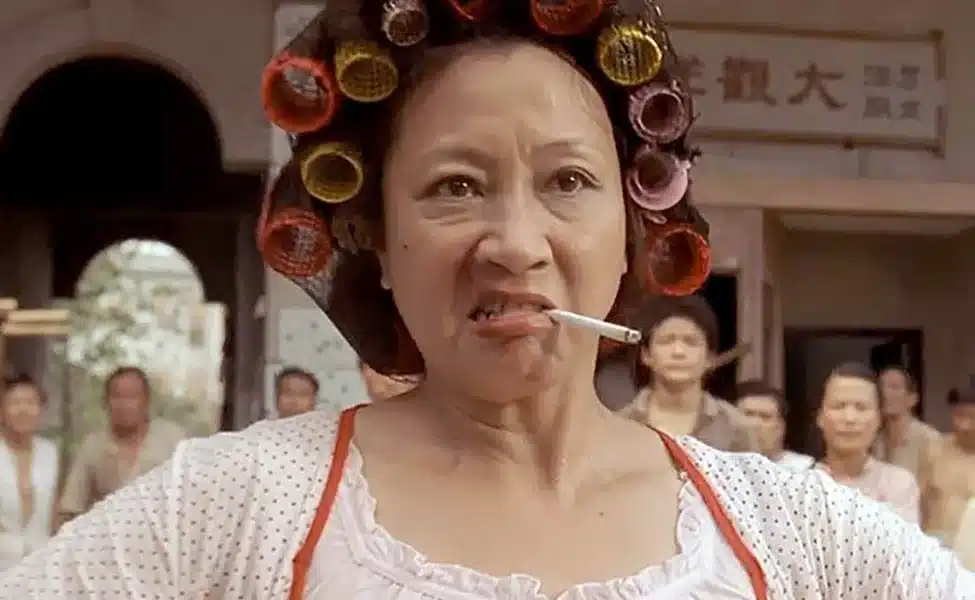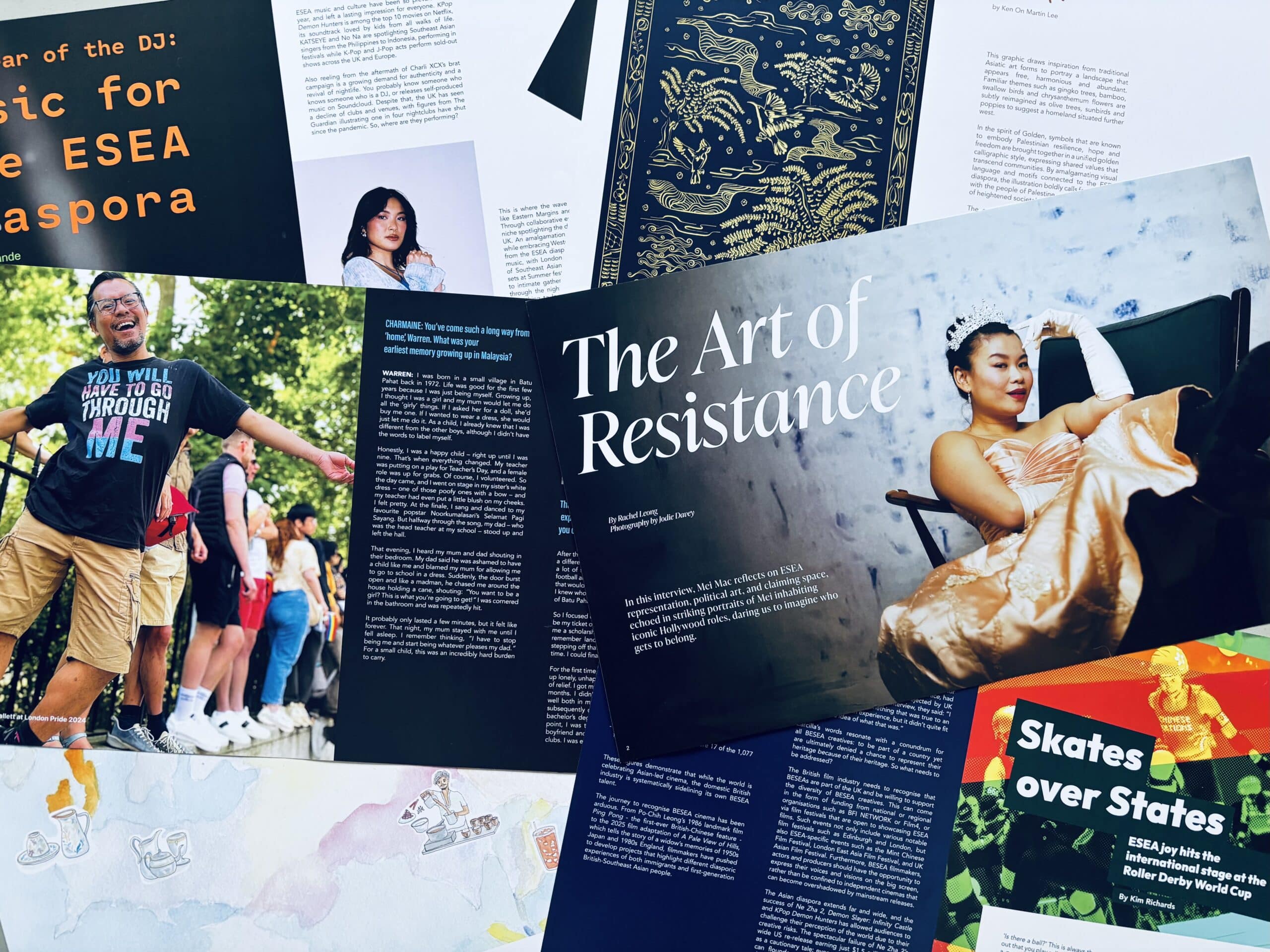Simu Liu, the acclaimed Chinese-Canadian actor known for breaking barriers in Hollywood with his roles in Marvel’s Shang-Chi and Greta Gerwig’s Barbie, has found himself at the center of a cultural appropriation controversy following his recent appearance on CBC’s Dragons’ Den.
The popular reality show, which invites aspiring entrepreneurs to pitch their business ideas to a panel of seasoned investors, took an unexpected turn when Liu challenged a bubble tea company on their approach to the beloved Taiwanese beverage.
The company, Bobba, presented their product as a “convenient and healthier ready-to-drink experience,” boasting innovations such as alcoholic bubble tea and grab-and-go popping boba. However, Liu raised concerns about the company’s lack of Asian representation and their framing of the product as an improvement on the original.
“There’s an issue of cultural appropriation,” Liu stated. “There’s an issue of taking something that’s very distinctly Asian in its identity and quote-unquote ‘making it better,’ which I have an issue with.”
This sparked a tense exchange with the company’s founders, Sebastien Fiset and Jess Frenette, who defended their product and highlighted their partnership with a Taiwanese supplier. “It’s a good question because our best partner is in Taiwan, actually,” Fiset explained. “So they make all the recipes, all the boba. We travel to Taiwan; we speak with them. They’re part of our team. It’s really important for us. So that’s the best part — that’s the cultural part of our product.”
However, Liu remained unconvinced, emphasizing the importance of acknowledging the drink’s cultural origins and actively working to uplift minority entrepreneurs. “I am studying your can, and I am looking for anything that tells me where boba came from. And where boba came from is Taiwan,” Liu pointed out.
Read more: Simu Liu Joins ‘Gremlins’ Season 2, ‘The Wild Batch’, Following on From ‘Secrets of the Mogwai’
“You know, I started this venture company for a lot of reasons, but really, primarily to uplift minority entrepreneurs. And not only do I feel like this is not happening here, but that I would be uplifting a business that is profiting off of something that feels so dear to my cultural heritage. I want to be a part of bringing boba to the masses, but not like this. So for that reason, I’m out.”
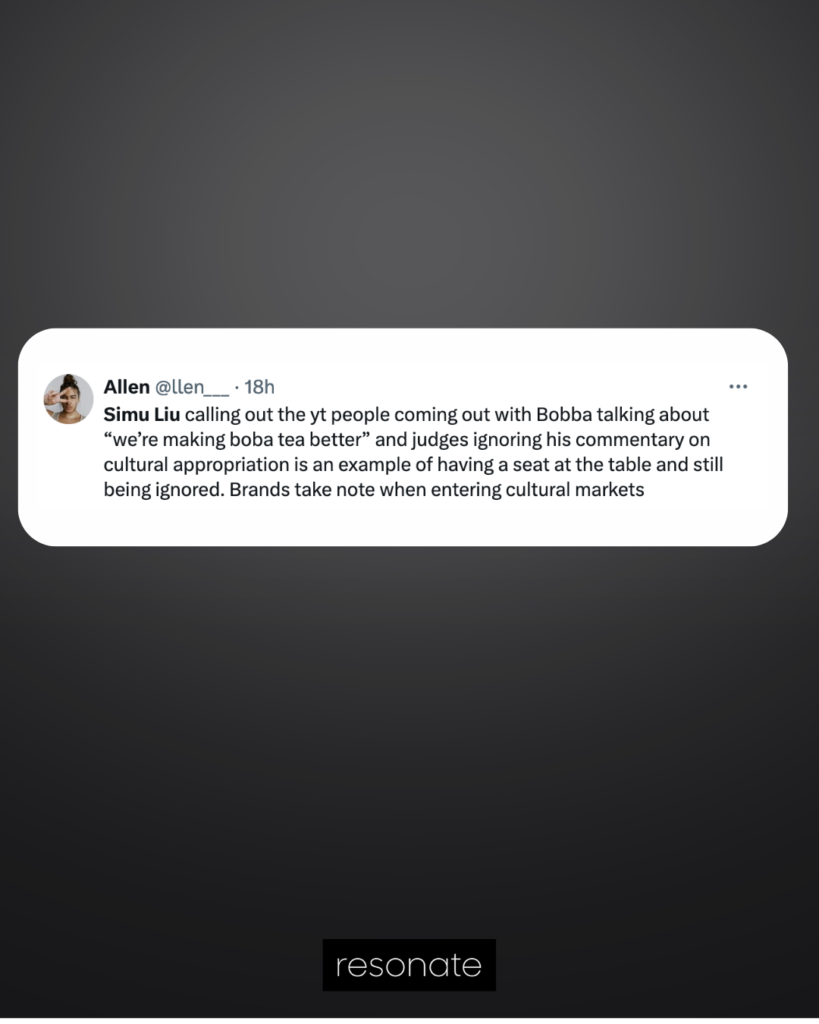
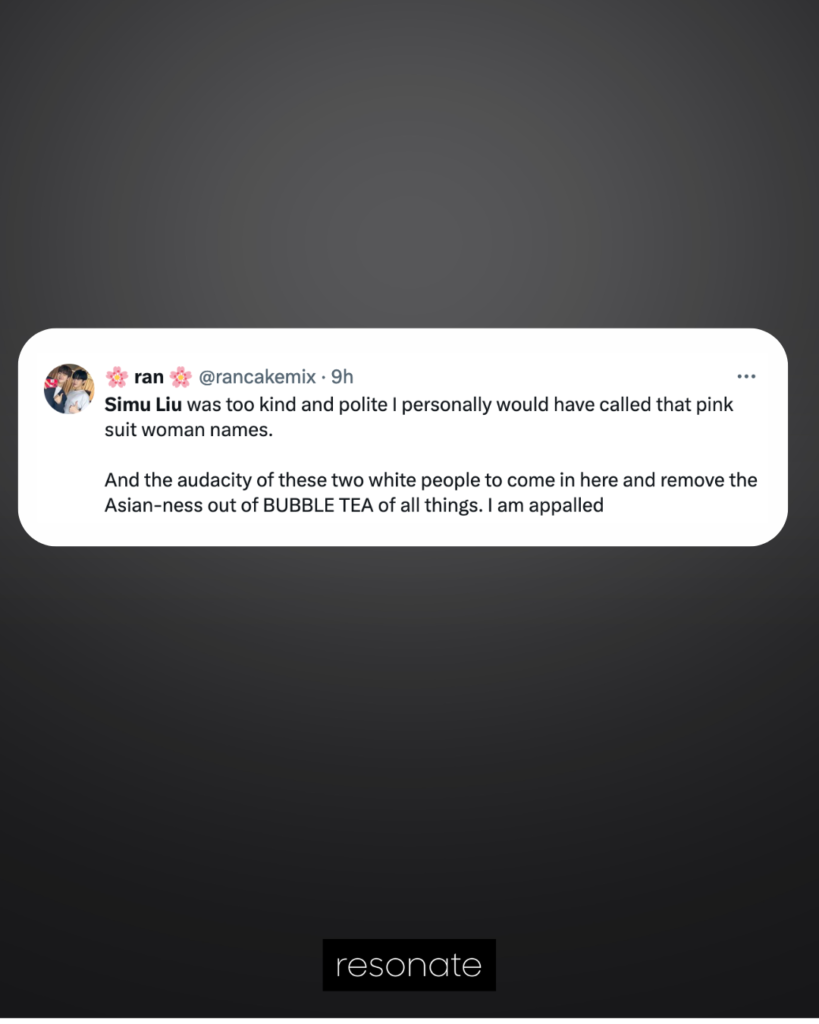
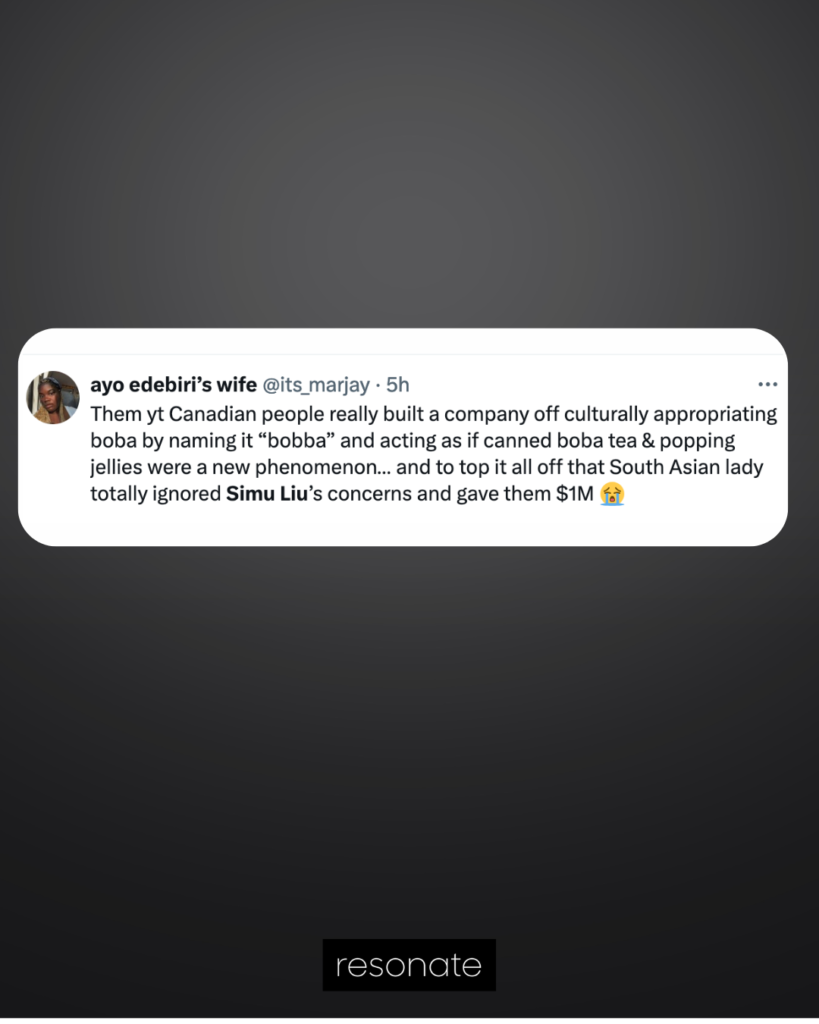
Liu’s decision to withdraw his support for “Bobba” has resonated with many viewers, sparking a wider discussion about cultural appropriation, representation, and the responsibilities of entrepreneurs when engaging with products and traditions from different cultures. Social media platforms have been abuzz with comments both supporting and criticizing Liu’s stance.
Some users have applauded Liu for using his platform to call out what they perceive as cultural appropriation and for advocating for greater respect and recognition of Asian culture. One Twitter user commented, “Simu Liu calling out the yt people coming out with Bobba talking about ‘we’re making boba tea better’ and judges ignoring his commentary on cultural appropriation is an example of having a seat at the table and still being ignored. Brands take note when entering cultural markets.”
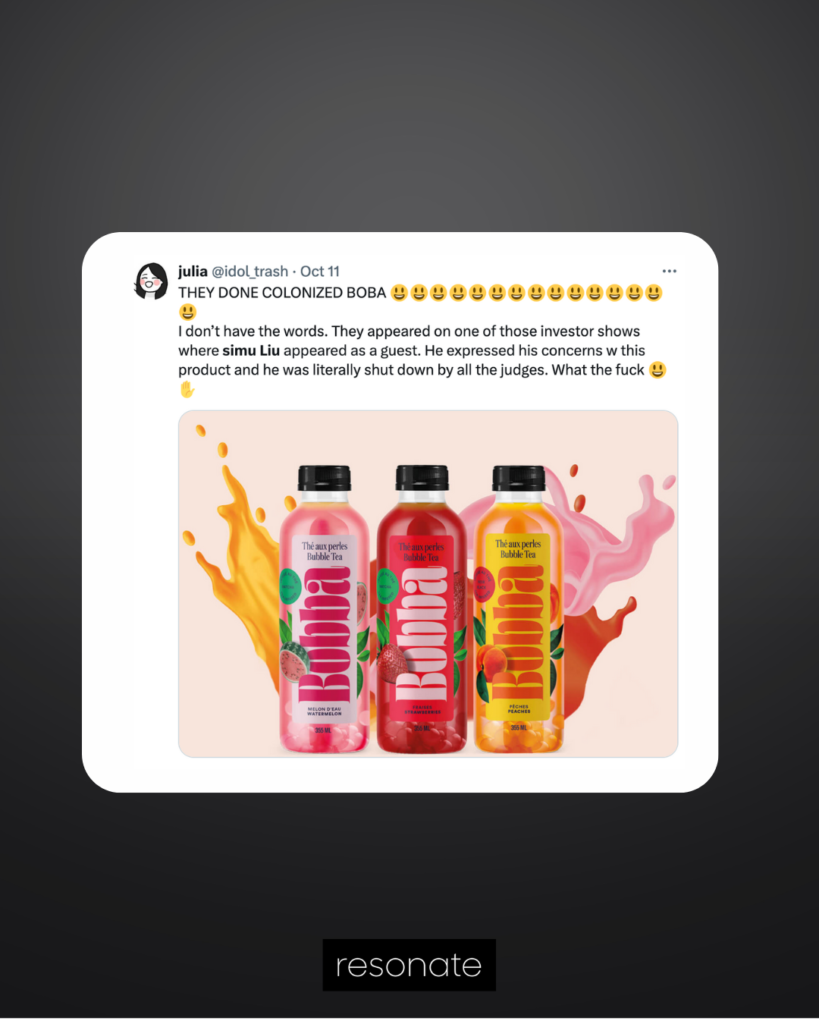
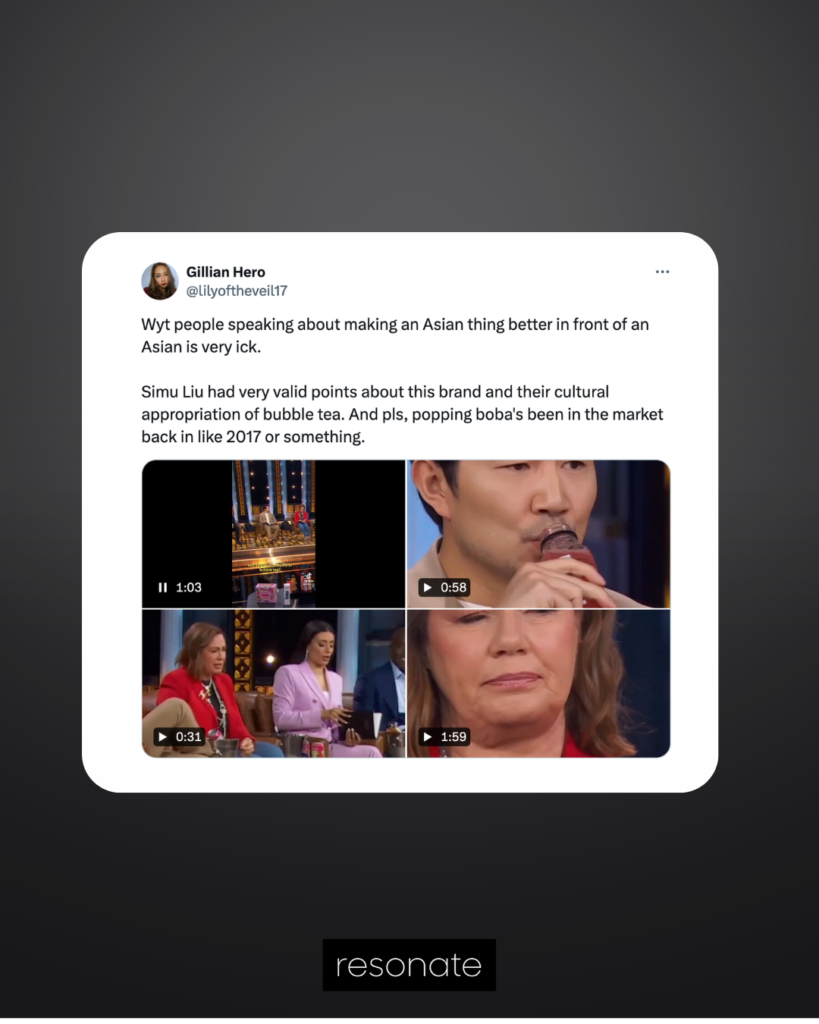

The episode concluded with “Bobba” accepting an offer from another investor, Manjit Minhas. However, the controversy surrounding Liu’s comments has left viewers pondering some important questions.
Did Simu Liu go too far in his criticism, or was he justified in raising concerns about cultural appropriation? Should entrepreneurs be held to a higher standard when it comes to respecting the cultural origins of products?


